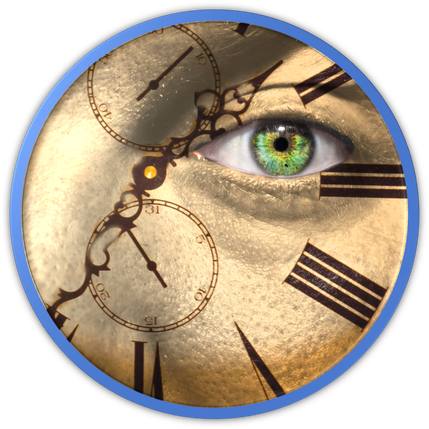The Impact of Story

Suspend your disbelief for just a minute and think about this …
Time only exists because humans created story.
The first moment of the first day on the first box of the first calendar was created because somehow, humanity discovered how to communicate a story about the world. Before that, time didn’t exist, right? How else can we possibility explain the inconsistencies between religious time and scientific time? Prehistoric… Before The Common Era… Common Era... Whatever your time moniker, it didn’t exist before we had a way to communicate it, and that is STORY.
Consider, we humans―at whatever stage it all began―are the only organisms on Earth that have figured out a system of empathetic communication that leaves a legacy. Unlike the other creatures that walk, fly, swim, and crawl upon the Earth, we have a history. We have a way to share the here and now. We have an emotionally driven idea of a speculative future. We have the ability to record it all, with the intention of leaving those stories to our heirs.
It started with oral tales and songs while sitting around a campfire or while huddled deep inside a dark cave with those we trusted. We memorized the stories. We made certain the knowledge was passed to the next generation as we ensured our survival into the next season of life. When we weren’t sure how to explain it succinctly, we created story to share the situations and feelings in a way that we hoped would one day be interpreted well.
Soon, we were drawing in the sand, on cave walls, and then on scrolls of parchment. We etched the most important stories on walls of monuments and tombs so that no one would forget… so we could take them into the next life.
As we grew and learned, we enhanced our storytelling legacy… we crafted precise books with a printing press, etched our words onto vinyl, depicted our stories on stage and film, and eventually, created a way for stories to have even grater longevity through digital mediums… e-books and audiobooks stored as bursts of energy we carry in our pockets and archive in vast libraries.
I am whole-heartedly convinced that if cave men, or Neanderthals, or whatever label you want to give them… our VERY FIRST ancestors, could have mastered language well enough to tell the stories that are missing, we could describe the discrepancies of time. We could explain, even if only in parable, the years that we are unsure of, the ones we don’t fully comprehend. Those stories would help us to empathetically appreciate the moments of the dinosaurs and before.
I believe this is why we must continue to write stories as humanity grows, adapts, and changes… so that we don’t loose track of time. We owe it to those who will come after us. They deserve it. Let’s not disappoint.
Time only exists because humans created story.
The first moment of the first day on the first box of the first calendar was created because somehow, humanity discovered how to communicate a story about the world. Before that, time didn’t exist, right? How else can we possibility explain the inconsistencies between religious time and scientific time? Prehistoric… Before The Common Era… Common Era... Whatever your time moniker, it didn’t exist before we had a way to communicate it, and that is STORY.
Consider, we humans―at whatever stage it all began―are the only organisms on Earth that have figured out a system of empathetic communication that leaves a legacy. Unlike the other creatures that walk, fly, swim, and crawl upon the Earth, we have a history. We have a way to share the here and now. We have an emotionally driven idea of a speculative future. We have the ability to record it all, with the intention of leaving those stories to our heirs.
It started with oral tales and songs while sitting around a campfire or while huddled deep inside a dark cave with those we trusted. We memorized the stories. We made certain the knowledge was passed to the next generation as we ensured our survival into the next season of life. When we weren’t sure how to explain it succinctly, we created story to share the situations and feelings in a way that we hoped would one day be interpreted well.
Soon, we were drawing in the sand, on cave walls, and then on scrolls of parchment. We etched the most important stories on walls of monuments and tombs so that no one would forget… so we could take them into the next life.
As we grew and learned, we enhanced our storytelling legacy… we crafted precise books with a printing press, etched our words onto vinyl, depicted our stories on stage and film, and eventually, created a way for stories to have even grater longevity through digital mediums… e-books and audiobooks stored as bursts of energy we carry in our pockets and archive in vast libraries.
I am whole-heartedly convinced that if cave men, or Neanderthals, or whatever label you want to give them… our VERY FIRST ancestors, could have mastered language well enough to tell the stories that are missing, we could describe the discrepancies of time. We could explain, even if only in parable, the years that we are unsure of, the ones we don’t fully comprehend. Those stories would help us to empathetically appreciate the moments of the dinosaurs and before.
I believe this is why we must continue to write stories as humanity grows, adapts, and changes… so that we don’t loose track of time. We owe it to those who will come after us. They deserve it. Let’s not disappoint.
